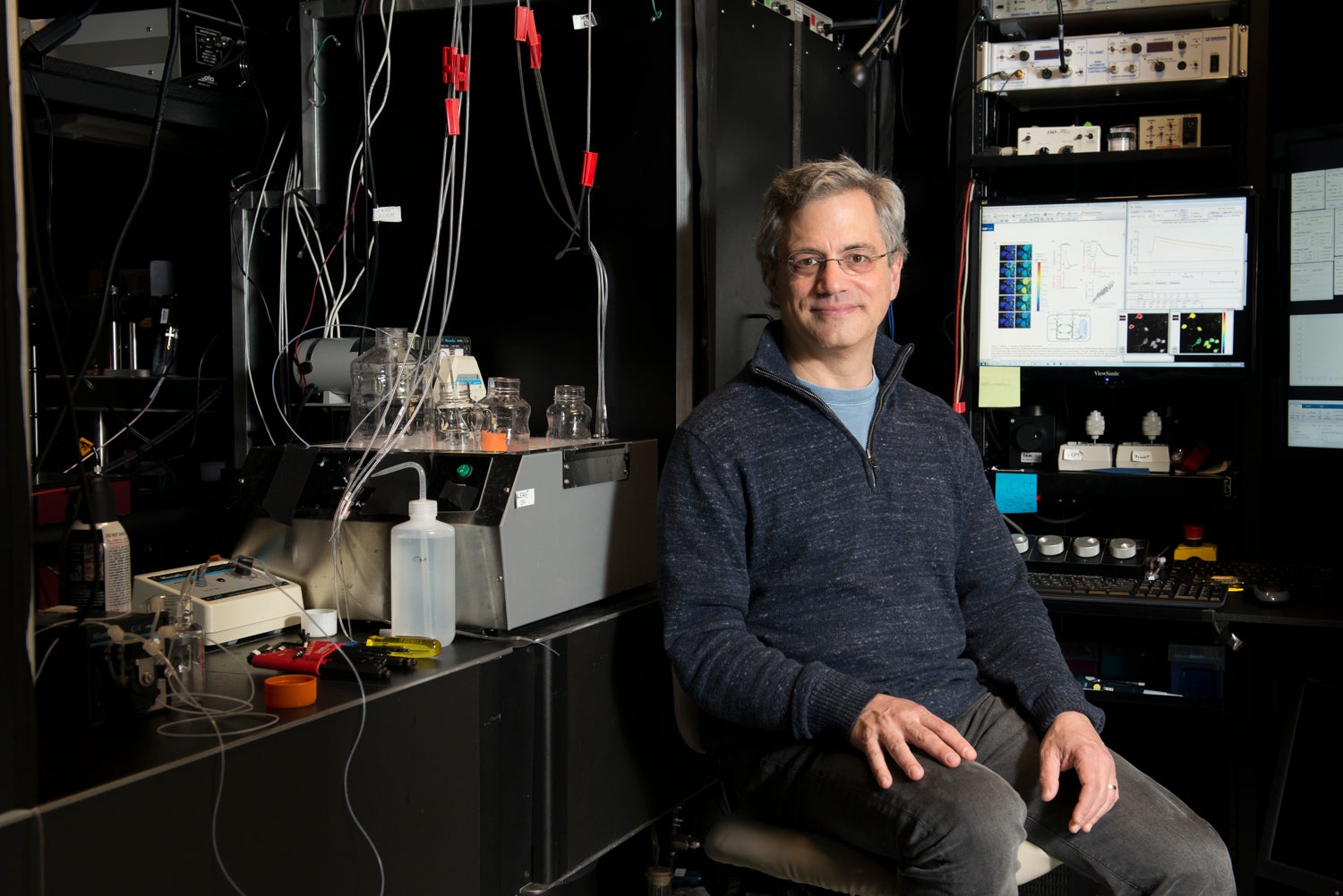
A major research focus of our lab was inspired by a remarkably effective but poorly understood therapy for epilepsy: the ketogenic diet. Used mainly for the many patients with drug-resistant epilepsy, this high fat, very low carbohydrate diet produces a dramatic reduction or elimination in seizures for most patients. We are investigating the possible role of metabolically-sensitive K+ channels (KATP channels) in the mechanism of the diet, and learning about their basic role in neuronal firing. We have discovered that a change in fuel supply to brain cells, or in their genetic preference for certain fuels, can produce opening of KATP channels in various central neurons. Opening of these channels slows action potential firing and may contribute to the anticonvulsant mechanism.
To investigate the metabolic events that lead to seizure resistance, and also to study the fundamental features of neural metabolism, we have developed a series of fluorescent biosensors of metabolism. These sensors allow us to visualize the local and time-varying changes of important molecules (like ATP or NADH) in living cells. We target these sensors to individual brain cells to learn how they respond dynamically to rapid changes in energy demand during brain activity, and how these responses change with variations in fuel supply and other alterations in metabolism. We use fluorescence lifetime imaging (FLIM) to get a quantitative readout of the sensors in acute brain slices or in vivo in the mouse brain.
